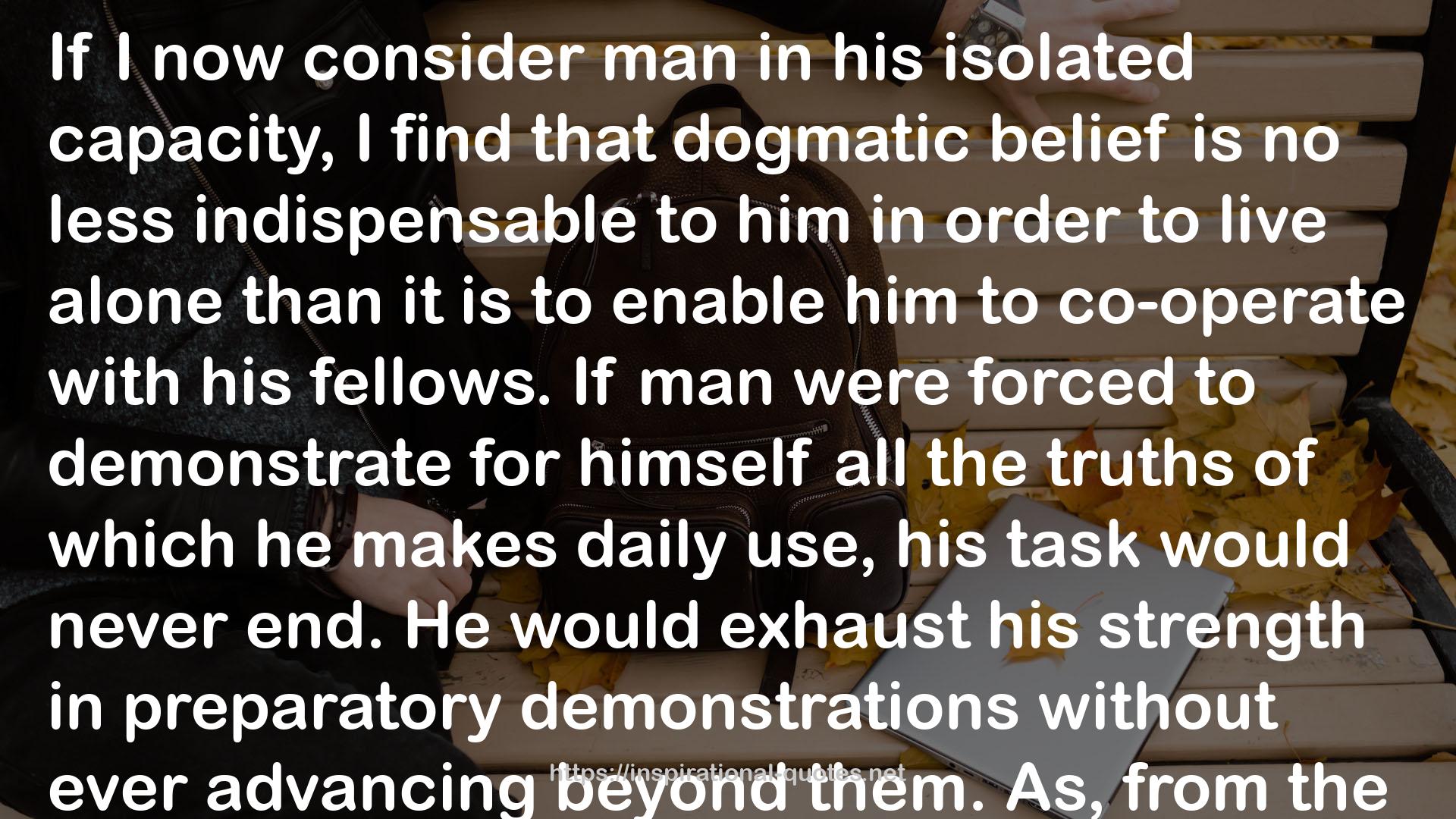" If I now consider man in his isolated capacity, I find that dogmatic belief is no less indispensable to him in order to live alone than it is to enable him to co-operate with his fellows. If man were
forced to demonstrate for himself all the truths of which he makes daily use, his task would never end. He would exhaust his strength in preparatory demonstrations without ever advancing beyond them.
As, from the shortness of his life, he has not the time, nor, from the limits of his intelligence, the capacity, to act in this way, he is reduced to take on trust a host of facts and opinions
which he has not had either the time or the power to verify for
himself, but which men of greater ability have found out, or which
the crowd adopts. On this groundwork he raises for himself the structure of his own thoughts; he is not led to proceed in this manner by choice, but is constrained by the inflexible law of
his condition. There is no philosopher in the world so great but that he believes a million things on the faith of other people and accepts a great many more truths than he demonstrates. (Tocqueville 1945 2:9-10; Oeuvres Completes (M) 1(2):16-17, (B) 3:15-16). "
― Alexis de Tocqueville , Tocqueville : Oeuvres complètes, tome 2
